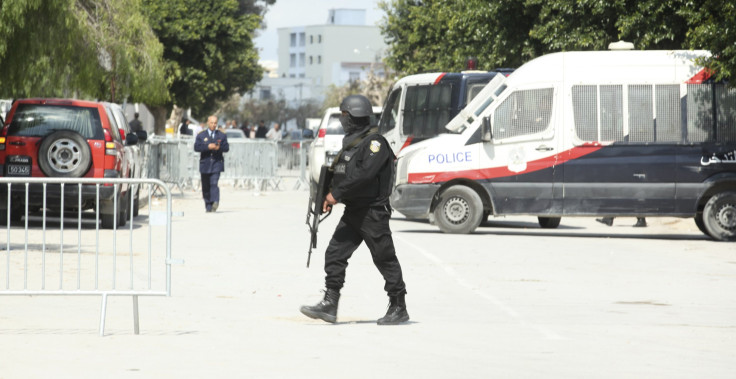Tunisia Parliament Attack Update: Gunmen Reportedly Still At Large; EU Policy Chief Blames ISIS

Five militants reportedly attacked the Bardo Museum in Tunisia's capital on Wednesday and several might have escaped after two were killed by security forces, Prime Minister Habib Essid said. "All Tunisians should be united after this attack, which was aimed at destroying the Tunisian economy," he said, according to the BBC.
European Union foreign policy chief Federica Mogherini blamed the Islamic State group for the attack and urged European leaders to help Tunisia fight domestic terrorism. "With the attack that has struck Tunis today, the Daesh terrorist organization is once again targeting the countries and peoples of the Mediterranean region," she said in a statement, using the Arabic acronym for the terrorist group that is also known as ISIS or ISIL. "This strengthens our determination to cooperate more closely with our partners to confront the terrorist threat."
Essid said 17 foreign nationals and two locals were killed in the attack at the museum, which is adjacent to the Parliament building in a complex in central Tunis, the capital of the North African nation. The two locals included a citizen and a police officer, Essid said, according to ABC News. The foreign casualties were reported to be from Poland, Germany, Italy and Spain. Tunisia’s Health Minister Said Aidi said the casualties also included tourists from France, South Africa and Japan, according to the BBC.
Essid said the tourists were getting off a bus to enter the museum when they encountered the attackers, who were dressed in military fatigues. The tourists ran toward the museum to avoid the assailants, who pursued them. A total of 22 tourists and two locals were injured during the attack.
The two gunmen were killed at 3 p.m. local time, according to local media. They had attacked the Parliament compound around midday and fled to the museum within the complex, where they held about 30 people hostage. Early reports said that at least eight tourists were killed and three militants in fatigues were behind the attack.
The identities of the gunmen had not been disclosed. BBC Arab affairs editor Sebastian Usher said they were likely Islamic militants trying to derail Tunisia's democratic transition. Tunisia has been fighting Islamist militants who emerged after 2011’s so-called Arab Spring uprising. J.M. Berger, author of the book “ISIS: The State of Terror,” tweeted that ISIS-related Twitter accounts have been “buzzing over Tunisia.”
ISIS Twitter buzzing over Tunisia, but note they have lately adopted an explicitly articulated strategy of "when in doubt, assume it's us"
— J.M. Berger (@intelwire) March 18, 2015© Copyright IBTimes 2024. All rights reserved.






















